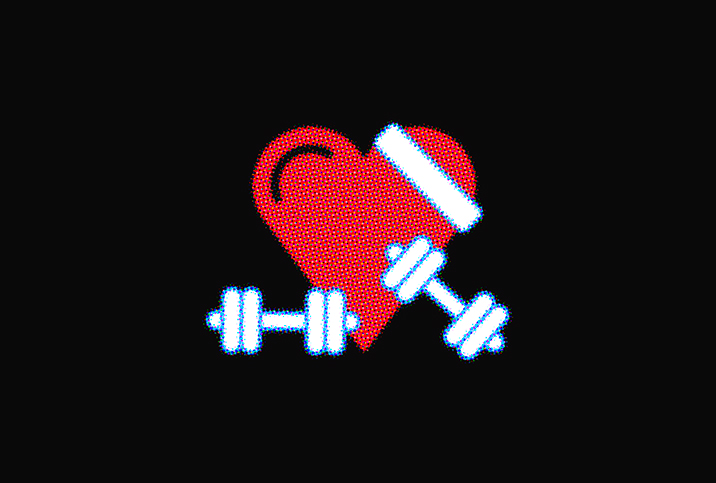Can Angina Be Added to the Causes of Erectile Dysfunction?

It is well chronicled that heart issues can contribute to erectile dysfunction (ED). After all, the heart is the organ that supplies blood to the penis.
In some cases, the correlation between a cardiovascular condition and the onset of erectile dysfunction is fairly easy to trace, such as with high blood pressure. In other instances, the connection isn't quite so clear.
Take angina, for example. About 10 million people in the United States have some type of angina, and its characteristics overlap with those of erectile dysfunction.
This begs the question: Can angina cause ED?
What is angina?
It should be noted that angina is not a disease and is instead classified as a symptom. There are several types of angina, including stable and unstable.
"Stable angina is classically described as a tightness, pressure, squeezing or heaviness [in the chest] brought on by a predictable level of exertion…and relieved by rest or nitroglycerin," said David Maron, M.D., the director of preventive cardiology at Stanford Medicine in California.
Unstable angina is a similar sensation but with slight differences. It occurs in a "crescendo pattern" and may be triggered by less intense or shorter durations of activities. It may also occur more frequently and while at rest or sleeping, and can be more severe than stable angina.
Doctors also separate angina into two categories called "ischemic" and "nonischemic."
Ischemic angina is caused by a lack of blood flow to the heart, often due to blockages of the coronary arteries. Nonischemic angina has a more diverse variety of causes. It can occur with heart failure, blood clots in the lungs or other problems within the chest, according to Michael Blaha, M.D., the director of clinical research for the Johns Hopkins Ciccarone Center for the Prevention of Cardiovascular Disease in Baltimore.
In either case, angina is a symptom, meaning it is generally a sign of a larger issue.
And that issue may cause erectile dysfunction.
"Angina does not cause ED," Maron said. "Angina and ED share the same underlying cause, namely, unhealthy arteries."
The relationship between ED and angina
"Angina and erectile dysfunction are distinct," Blaha explained. "But they both can be manifestations of a disease of the blood vessels or vascular disease."
He explained vascular disease is the result of compounding exposure to risk factors over time. These risk factors include hypertension, diabetes, smoking, physical inactivity and a poor diet.
While angina can't cause ED—nor can ED cause angina—they do share common characteristics.
"When one is present, we typically ask questions about the potential presence of the other," Blaha said.
"Angina is a clinical diagnosis, meaning that it is diagnosed by an experienced clinician who considers the history and the characteristics of the patient," Maron explained. "It is usually caused by myocardial ischemia, or reduced blood flow to the heart muscle due to one or more narrowed coronary arteries."
When diagnosing a patient, Blaha outlined five questions doctors typically ask:
- When does the symptom occur?
- How long does it last?
- Is the sensation related to exercise?
- What makes it go away?
- Is it associated with other symptoms, such as shortness of breath?
The diagnosis can be confirmed in a number of ways, according to Maron. Doctors can provoke the symptom, record ischemia on a stress test and look for narrowed arteries on an angiogram. They can note if the angina is being alleviated or prevented by nitroglycerin or other common angina-treating medications.
Many of those medications are often used to treat heart disease. Those most commonly prescribed to relieve angina include nitroglycerin, beta blockers, calcium channel blockers and ranolazine.
"These treatments can improve vascular disease overall, and sometimes also improve symptoms of erectile dysfunction," Blaha said.
Does angina cause ED?
To be blunt, no, angina doesn't cause ED. But that doesn't mean the two issues can't co-occur. They are not mutually exclusive. When they do co-occur, they could indicate a more significant cardiovascular issue at play.
"Angina is a symptom," Blaha said. "However, it is commonly a symptom of an important disease. Therefore, we commonly take angina very seriously."
It's important to consult a doctor if you're noticing irregular or frequent tightness in your chest.
"Taking a careful history is necessary to differentiate between angina and other causes of chest pain," Maron said.
In short, ED is often a multifaceted condition subject to a large number of causes and solutions. In conjunction with angina, it could be a prominent indicator of vascular disease, which, if untreated, could lead to much more serious and long-lasting conditions.
Men who suffer from any one or a variety of these conditions may have restrictions on what sort of treatment they can use, or they may not like the side effects of common treatments. Eddie® is a safe treatment that does not have the side effects of prescription pills, nor does it require a prescription to obtain.
An FDA-registered Class II medical device, Eddie is designed to treat erectile dysfunction and improve male sexual performance. Its specific shape optimizes blood flow as it puts pressure on the veins of the penis but not the arteries.


















